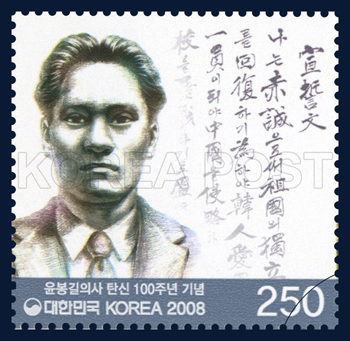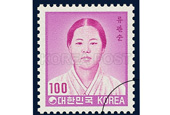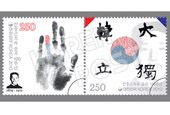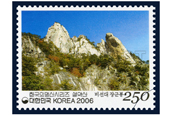-
 Korea.net's 24-hour YouTube channel
Korea.net's 24-hour YouTube channel- NEWS FOCUS
- ABOUT KOREA
- EVENTS
- RESOURCES
- GOVERNMENT
- ABOUT US
Imperial Japan forcefully occupied Korea, and later continued its invasion of China by staging the Manchurian Incident in 1931. The following year, during a ceremony at Hongkew Park in Shanghai on April 29, 1932, to mark a Japanese military victory, a young man threw a bomb onto the platform on which Japanese military officials stood. This was Korean martyr Yun Bong-gil (1908-1932). A number of high-ranking Japanese military officials, including the commander of the expeditionary force in Shanghai, were killed because of the bombing. Yun was arrested on site. At the age of 25, Yoon was executed by firing squad on Dec. 19 that year.

Yoon was born in Yesan, Chungcheongnam-do Province (South Chungcheong Province), on June 21, 1908. He registered in an elementary school when he was ten years old, in 1918, but after the March 1 Independence Movement began the following year, he refused any kind of education provided by the colonial regime and left school. He then studied the Chinese classics at a traditional village school and taught himself science and methodology from the West.
Yoon ran a night school and formed a book reading club to educate farmers. He also wrote a textbook to teach farmers and he devoted himself to enlightening them and to developing the rural communities. When he was 23 in March 1930, he went to China to pursue a grander goal for the Korean people.
On Oct. 18, 1930, in Qingdao, Yoon wrote a letter swearing a pledge for the Korean nation.
"I made up mind that there is a love that is more determined and upright than love toward one's parents, siblings or wife. My decision was to walk that path, even if I had to leave my country and parents behind."
On April 26, 1932, he joined a group of independence activists, including Kim Koo, and planned the bombing.
The news of the attack became known in many countries. Chiang Kai-shek, leader of the Republic of China, praised Yun, saying, "One Korean man did a great deed, which 400 million Chinese people could not do."
By Limb Jae-un
Korea.net Staff Writer
Photos courtesy of Korea Post
jun2@korea.kr

A stamp issued in 2008 marks the 100th anniversary of martyr Yun Bong-gil's birth.
Yoon was born in Yesan, Chungcheongnam-do Province (South Chungcheong Province), on June 21, 1908. He registered in an elementary school when he was ten years old, in 1918, but after the March 1 Independence Movement began the following year, he refused any kind of education provided by the colonial regime and left school. He then studied the Chinese classics at a traditional village school and taught himself science and methodology from the West.
Yoon ran a night school and formed a book reading club to educate farmers. He also wrote a textbook to teach farmers and he devoted himself to enlightening them and to developing the rural communities. When he was 23 in March 1930, he went to China to pursue a grander goal for the Korean people.
On Oct. 18, 1930, in Qingdao, Yoon wrote a letter swearing a pledge for the Korean nation.
"I made up mind that there is a love that is more determined and upright than love toward one's parents, siblings or wife. My decision was to walk that path, even if I had to leave my country and parents behind."
On April 26, 1932, he joined a group of independence activists, including Kim Koo, and planned the bombing.
The news of the attack became known in many countries. Chiang Kai-shek, leader of the Republic of China, praised Yun, saying, "One Korean man did a great deed, which 400 million Chinese people could not do."
By Limb Jae-un
Korea.net Staff Writer
Photos courtesy of Korea Post
jun2@korea.kr























